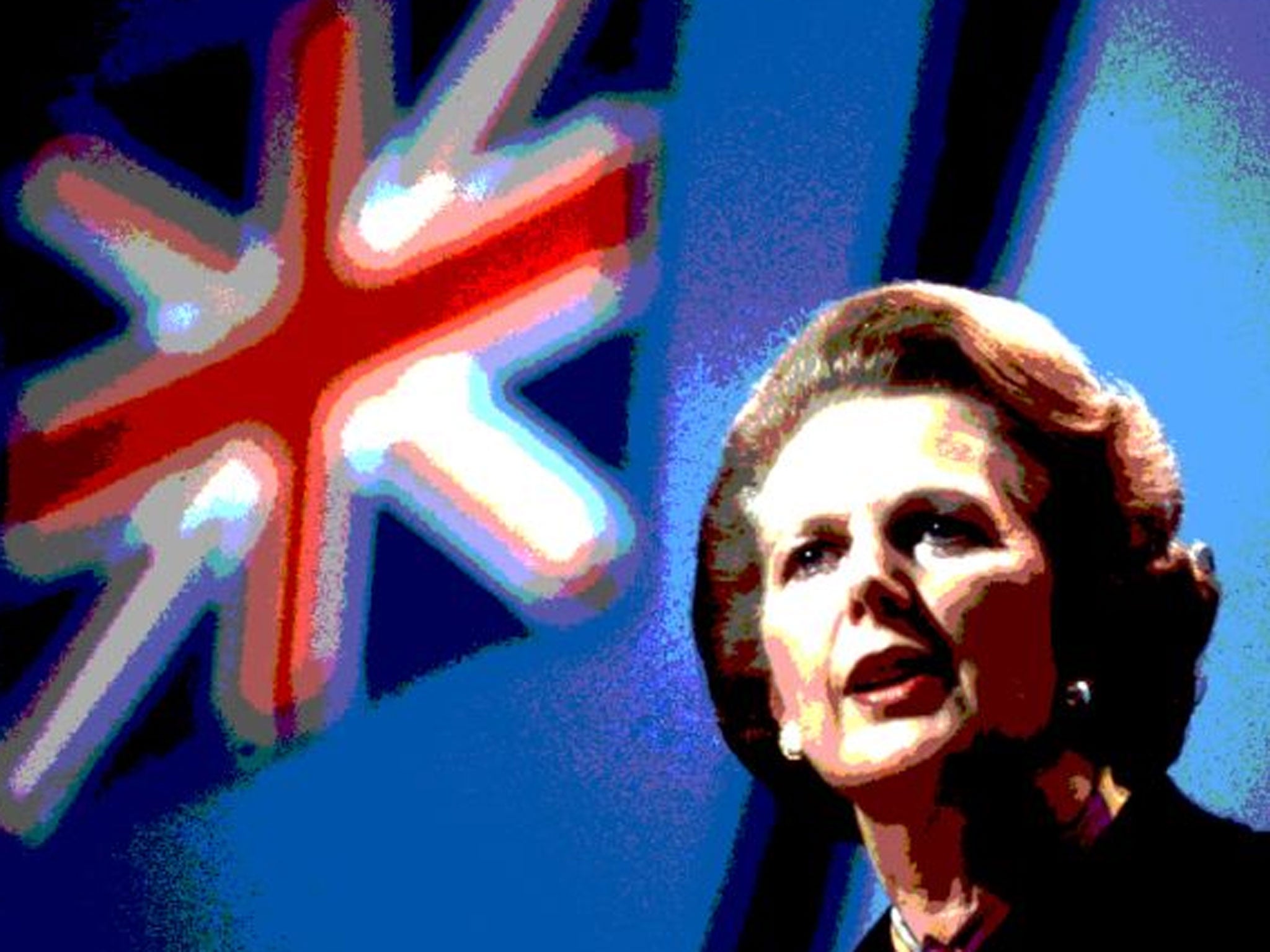Margaret Thatcher's death: Newspapers pay respect while social media dances on her grave
Popular opinion, at least that expressed on Twitter, seems out of sync with the media

Your support helps us to tell the story
From reproductive rights to climate change to Big Tech, The Independent is on the ground when the story is developing. Whether it's investigating the financials of Elon Musk's pro-Trump PAC or producing our latest documentary, 'The A Word', which shines a light on the American women fighting for reproductive rights, we know how important it is to parse out the facts from the messaging.
At such a critical moment in US history, we need reporters on the ground. Your donation allows us to keep sending journalists to speak to both sides of the story.
The Independent is trusted by Americans across the entire political spectrum. And unlike many other quality news outlets, we choose not to lock Americans out of our reporting and analysis with paywalls. We believe quality journalism should be available to everyone, paid for by those who can afford it.
Your support makes all the difference.National mourning is a funny thing; often the nation isn’t that involved. The night of the Queen Mother’s passing, a TV journalist sent to the West End to gauge ‘public sentiment’ reported that undeterred party-goers were evidence of the Blitz spirit. And while there’s no doubting Diana’s death touched a nerve, episodes of Coronation Street have had more viewers than her funeral did. The argument being that, perhaps, away from the gates of Buckingham Palace, people were busy getting on with their lives. With the death of Margaret Thatcher, social media opens us up to the nation’s opinions in all their funny, offensive glory.
After the news broke, a clear celebratory current was quick to emerge in response to, essentially, the death of an 87-year-old woman. There were parties, there’s a Spotify playlist, and #nostatefuneral started trending. There are the predictable one-liners. “I’ve just seen the plans for Margaret Thatcher’s grave… Its beautiful – but I think they should have made the dance floor bigger.” But these aren’t throw away comments - they are a distinct strand of public sentiment.
Nick Davies, the journalist who broke the phone hacking scandal, noted in his book Flat Earth News that big deaths lead newspapers to revert to a simple formula: “the nation is mourning; everybody must mourn; that’s the story… The facts are forced to fit the feeling”.
With the death of the Queen Mother, there was no sea of flowers outside Buckingham Palace and journalists elevated the only crying lady in the vicinity to a momentary national celebrity. Even the Observer, not known for its monarchism, cleared the first ten pages and ran the headline ‘The Queen Mother’s death robs the nation of its favourite grandmother’. And who remembers where they were the day she died?
Like others tasked with putting their politics aside, Michael White in the Guardian leads with Thatcher as inspiring female figure. Paul Routledge in The Mirror is more provocative, calling for ‘an inquest’ on her life and influence and stating that half the nation will be celebrating. The Liverpool Echo is damning, accusing her of indifference and ignorance to the city’s needs. But their report on the Hillsborough tragedy, while a statement in itself, only goes as far as saying her role was ‘unclear’. There is a greater diversity of feeling in the opinion pages, but it comes nowhere close to the passionate commentary on social media.
A Twitter search for ‘Liverpool’ and ‘Thatcher’ returns little other than joy, anger and hatred; it is apparent the shadow of Hillsborough still hangs heavy amongst the people. “What a great day in Liverpool! Margaret Thatcher is dead! Justice for the 96! #Weregonnahaveaparty.” And a lot, lot worse.
These aren’t the only responses, of course. There’s indifference. There’s a kickback and calls for humanity. There are jokes about Iron Man. There’s concern for Cher’s well-being (thanks to #nowthatchersdead). There’s a push to see ‘Ding Dong the Witch is Dead’ to number one. But there is little in the way of compliments of her tenure.
Social media users are free to indulge their uglier impulses - spite, bad humour, moralising - with little policing (except if you’re the manager of Oddbins suspended for trying to flog champagne off the back of her death).
Meanwhile, it is newspapers’ ability to thrash a coherent and respectful line from the contention that sets them apart from the noise of social media. But in this new age, they must be careful of their conservative impulse to toe the line in times of crisis.
While dancing on another’s grave should never be an option when it comes to public sentiment, mainstream news outlets need to make sure they’re tuned into the right music.
Join our commenting forum
Join thought-provoking conversations, follow other Independent readers and see their replies
Comments